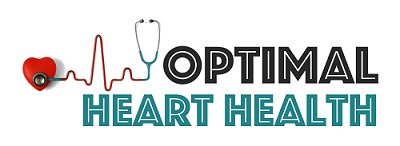Why do we use medications for alcohol detoxification?
Severe alcohol withdrawal may be lethal if left untreated. This is owing to the significant possibility of severe symptoms including delirium, seizures, hallucinations, problems with blood pressure, fever, and faster heartbeat developing in an alcoholic who abruptly ceases drinking. If treatment is put off or neglected, seizures might be deadly. While hallucinations and delusions don’t always cause death, they might result in dangerous situations like injuring oneself or others. Up to 25% of persons may have seizures within the first 24 hours following their last drink, and 5% of patients may experience delirium tremens due to alcohol withdrawal. Symptoms of delirium tremens often appear between two and four days after drinking has stopped. Below are medications used during withdrawal:
- Benzodiazepines
Anxiety, anxiety attacks, panic disorder, seizures, and sleeplessness are just a few of the illnesses treated with benzodiazepines, a family of tranquilizers. Valium, Librium, Xanax, Diazepam, and Ativan are some of the most well-known benzodiazepines. They are widely used in several types of drug purging. Because of their propensity for addiction, benzodiazepines are frequently employed in drug detox, although they must be provided carefully and monitored. For folks who have never misused benzodiazepines, these medications may be quite helpful throughout the detox process. Benzodiazepines may be used by those who have or are presently abusing them throughout the detox process, but they must be closely monitored.
- Disulfiram
Disulfiram is a drug that is frequently prescribed during the detoxification process and is used to address alcohol use disorder and alcoholism. This medication causes acute sensitivity to ethanol when paired with alcohol, which is the desired and intended physical effect of the drug’s development and manufacturing. Disulfiram is sold under the trade name Antabuse.
- Buprenorphine
Buprenorphine, an opioid partial agonist, is most often used during withdrawal from opioids or opiates. It is FDA-approved for the management of opiate dependence and addiction. It is suitable for use in a detox program under medical supervision and may also be given as a component of a Medication-Assisted Treatment (MAT) strategy. By reducing cravings and withdrawal symptoms, improving safety in the case of an overdosing, and lowering the chance of misuse, the medication buprenorphine minimizes the harmful effects of physical opioid dependency.
- Naltrexone
The medication naltrexone is often used by patients undergoing medical detoxification and treatment for alcohol addiction, an opioid use disorder, or opioid dependence. It has FDA approval and may be administered intravenously or orally. Because it blocks the euphoric and sedative effects of opioids, including morphine, heroin, fentanyl, and codeine, naltrexone is beneficial. This medication reduces cravings by interacting with and inhibiting opioid receptors in the brain.
Seek Help from The Best Rehab in Dallas
Many people have achieved sobriety with the use of both medication and abstinence. These people normally find that within a short period, things begin to improve once again. They now radiate more vigor, psyche, and optimism than they did before. The use of medicine may significantly boost a person’s prospects for long-term recovery and the effectiveness of their treatment. Get in contact with Taylor Recovery Center in Dallas immediately to find out more about your alternatives throughout detox and treatment.

